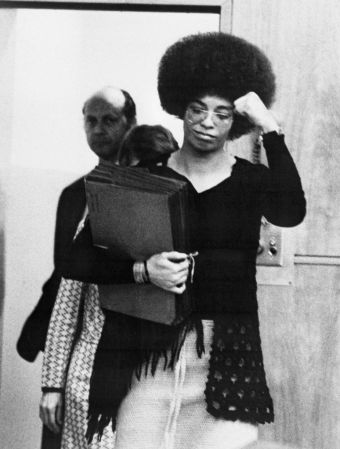The Political Power And Legacy Of Black Women Is Undefeated
The Civil Rights Movement and the Black Power Movement, (1954–1980)

Source: Bettmann / Getty
“In order for us as poor and oppressed people to become part of a society that is meaningful, the system under which we now exist has to be radically changed. It means facing a system that does not lend itself to your needs and devising means by which you change that system.”— Ella Baker
“A Negro woman has the same kind of problems as other women, but she can’t take the same things for granted.”— Dorothy Height
“As a black woman, my politics and political affiliation are bound up with and flow from participation in my people’s struggle for liberation, and with the fight of oppressed people all over the world against American imperialism.”— Angela Davis
Though the abolishment of slavery brought about emancipation and granted citizenship to all, African Americans were more deprived of civil rights than ever. Racist laws such as Jim Crow left African Americans subjected to discrimination, socioeconomic inequality, disenfranchisement and violence. Through various efforts via non-violence and peaceful resistance, the Civil Rights Movement was born.
Though some methods within the movement were criticized for not moving African Americans far enough in their fight for racial equality, it did influence the racial pride and self-determining, Black Power Movement—one that while criticized for less peaceful resistance, resulted in the establishment of more Black-owned businesses and promotion of racial unity.
In the same movement highlighting the visions of Martin Luther King, Malcolm X and A. Phillip Randolph, Black women such as Ella Baker, Septima Clark, Dorothy Height, Fannie Lou Hamer, Kathleen Cleaver and Angela Davis were using their active roles and self-determination in both movements that resulted in the passage of federal laws such as the Civil Rights of 1964, rulings on federal judiciaries such as Brown v. Board of Education, the ruling of Bus segregation as unconstitutional, formation of organizations such as The Black Panther Party and the Ten-Point Program, an organization of influential events such as the 1963 March on Washington.
Black women played a variety of important supporting and leadership roles; in addition to aiding their male counterparts in power, Black women also lead organizations such as the Student Non-Violent Coordinating Committee and the Voter Education Project.
And while the Civil Rights Movement and the Black Power Movement are notably centered around Black male figures, Black women were also primary leaders in two of the most successful political movements of all time.
RELATED CONTENT: These Black Women Were Direct Allies Of Dr. Martin Luther King Jr. During The Civil Rights Movement









